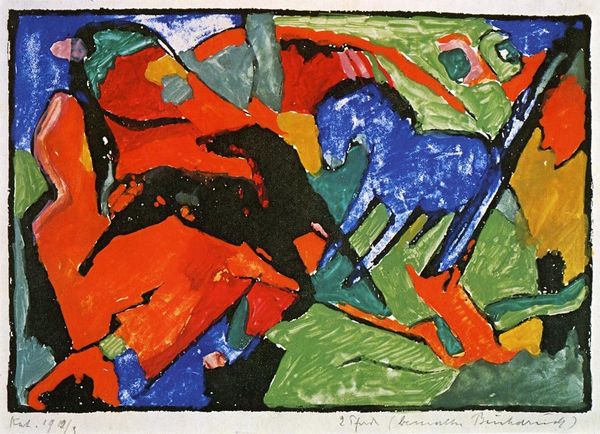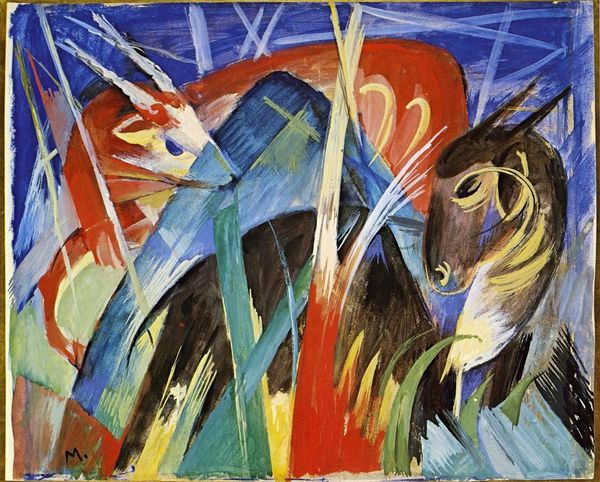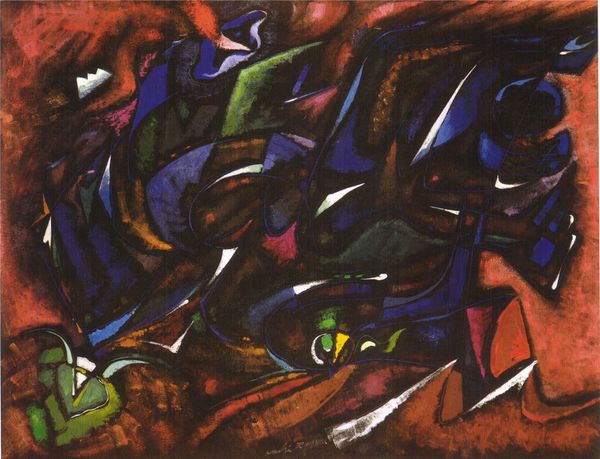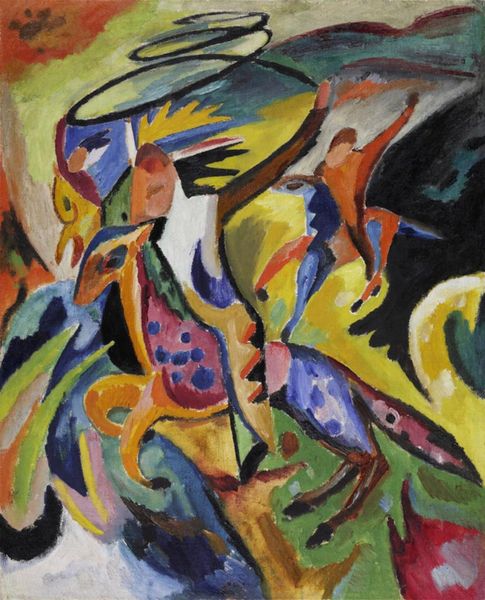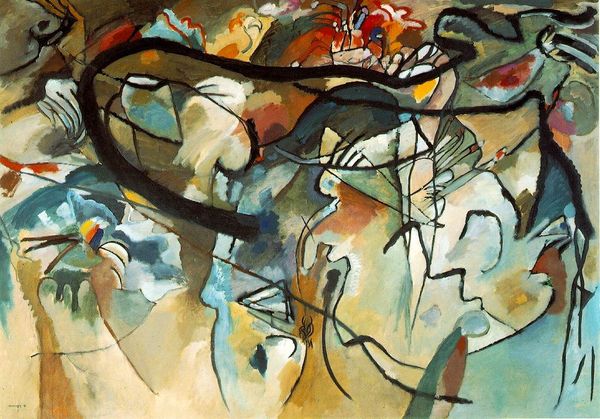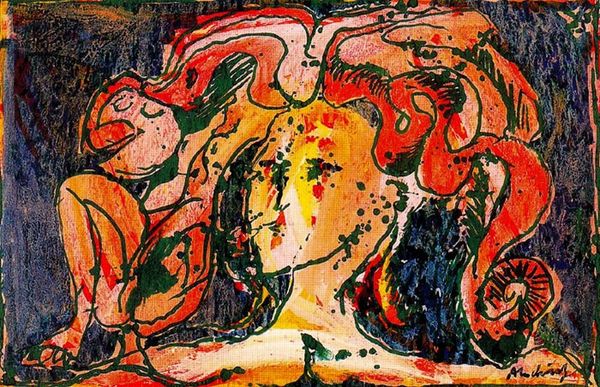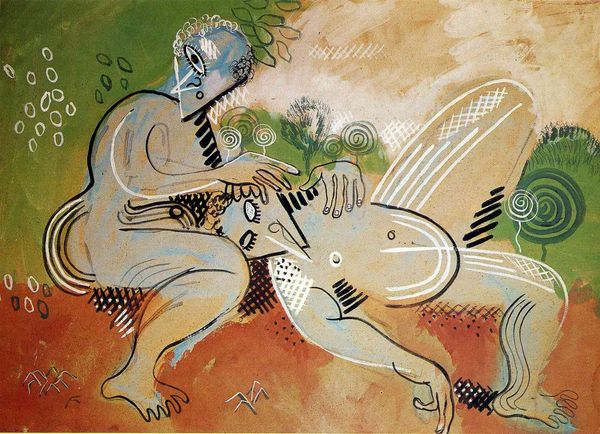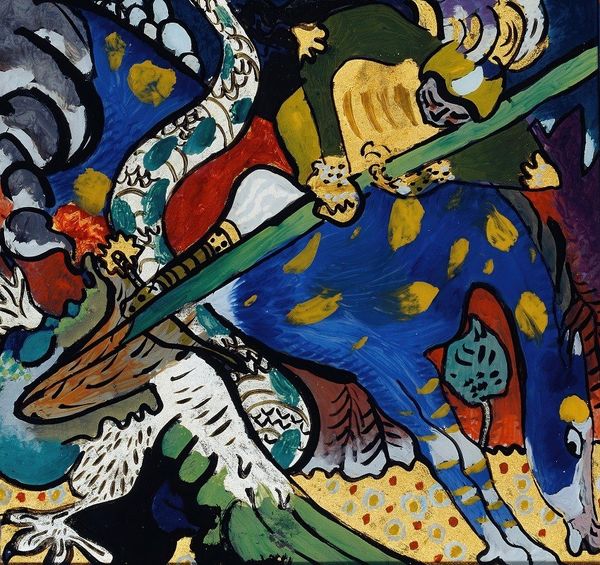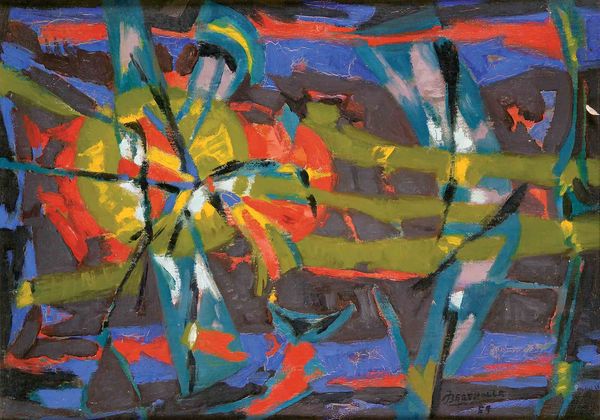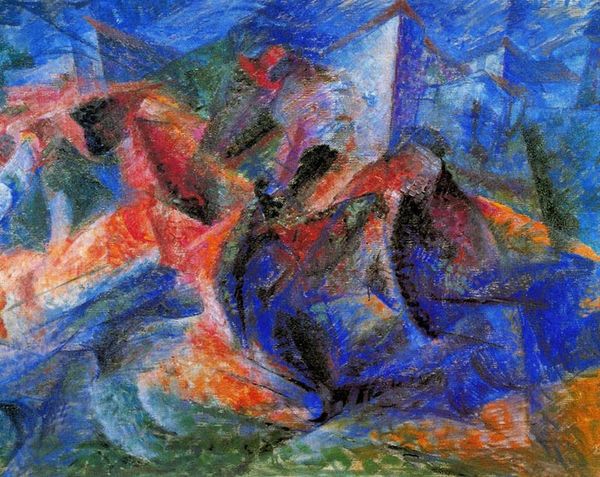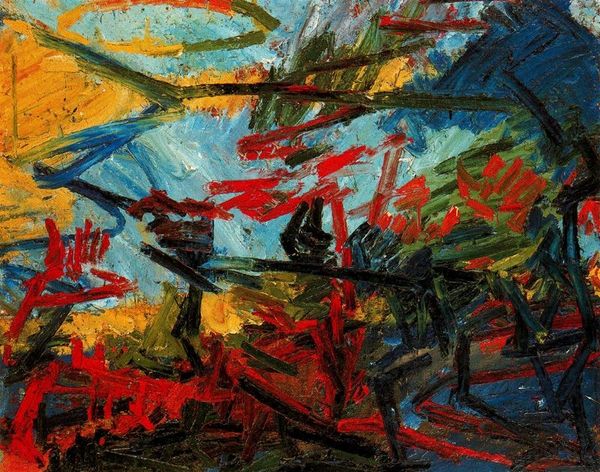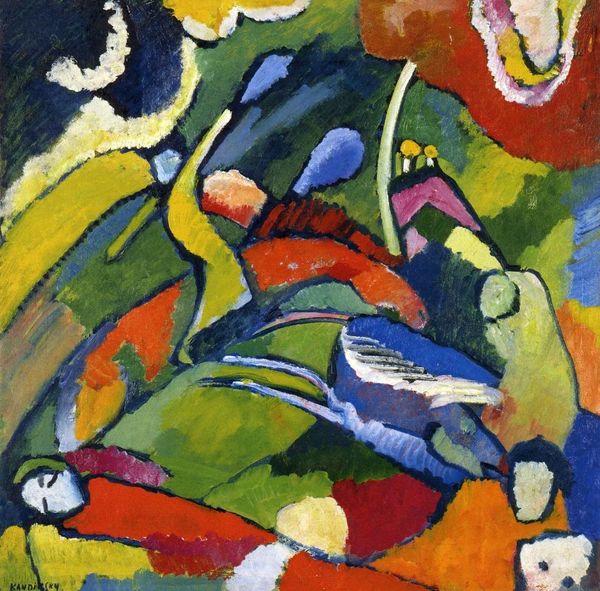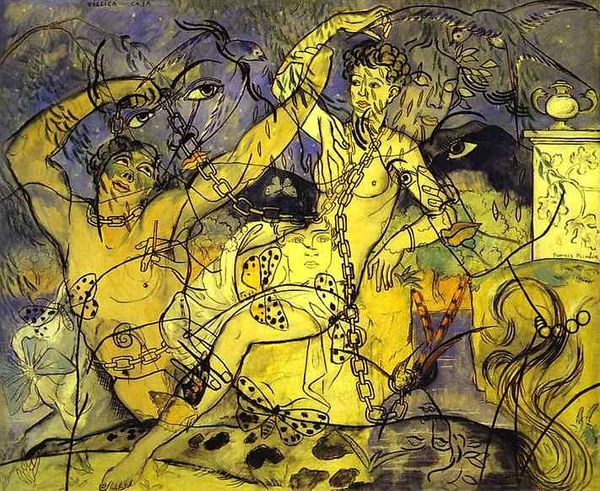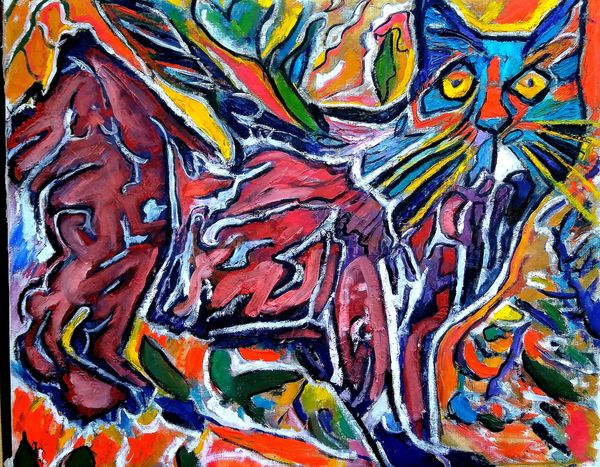
Copyright: Houria Niati,Fair Use
Curator: What a rush of colour and shape. There’s an undeniable raw energy here. Editor: Indeed. We're looking at Houria Niati's "Yesterday Torture," created in 1985. She is working here with acrylic paint to unsettling effect. It feels… chaotic, almost violent. Curator: That emotional intensity comes through strongly. Looking at it from a historical perspective, this piece reflects a period of significant social and political upheaval, particularly for Algerian immigrants in France, where Niati was living at the time. The imagery suggests a deep engagement with themes of alienation, identity and colonial history. Editor: Absolutely. You can almost feel the force of the brushstrokes. It is interesting how she lays down the acrylic to construct depth and form while letting areas feel unfinished or raw. Do you think she is highlighting the labour inherent in expressing trauma? The pain of production almost mimicking the pain depicted? Curator: I think you are absolutely correct, given her consistent focus on the postcolonial identity. What looks like abstraction resolves into figuration on closer inspection. See how faces and bodies emerge from the colour. It seems Niati’s intentionally blurring those lines – demanding we confront uncomfortable truths. I would say the composition challenges the traditionally sanitized representations of marginalized communities often seen in mainstream art of that era. Editor: And I would say she utilizes inexpensive materials – acrylic rather than oil, which democratizes not only the process, but speaks to who gets to engage in mark-making, image production. These were tools at her immediate disposal for reclaiming agency, narrativizing personal lived experience, not for creating investment vehicles. Curator: And that accessibility also meant these images circulated more broadly than paintings on museum walls. Her street performance further demonstrates this public role for art and its ability to provoke a response. Editor: Looking at “Yesterday Torture,” one sees the work being not just about the subject matter, but the act of creating itself is an act of defiance, isn’t it? A reclamation of cultural space? Curator: Exactly. It serves as an example of how marginalized artists challenge dominant narratives, and in effect, expand the conversation, no? Editor: Leaving us, hopefully, better informed.
Comments
No comments
Be the first to comment and join the conversation on the ultimate creative platform.
